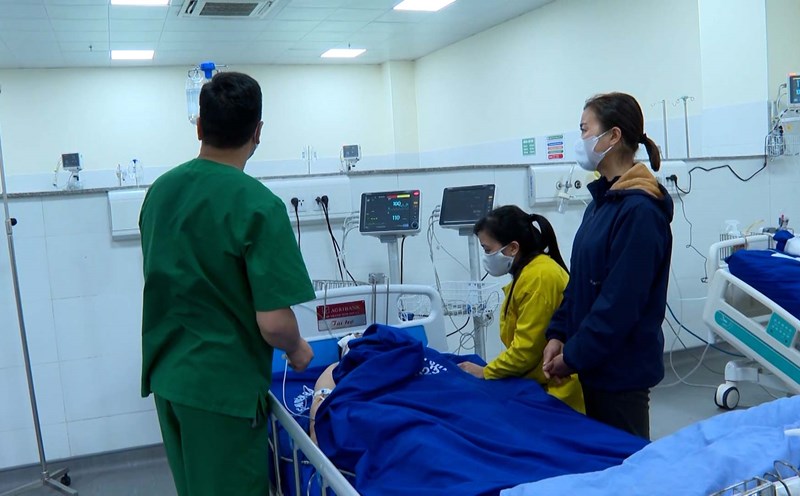There are about 3 million textile and garment workers
Mr. Nguyen Vinh Quang - Deputy Head of the Department of Legal Policy and Labor Relations of the Vietnam General Confederation of Labor - said that according to statistics from functional agencies, as of 2024, Vietnam has about 7,000 textile and garment enterprises with about 3 million employees, of which about 74% are female and 90% are workers working in the garment industry. Vietnam's textile and garment products have been exported to about 180 countries and territories around the world.
Currently, 735 textile and garment enterprises nationwide have established grassroots trade unions, of which 95.4% have built salary scales, salary tables, and the average income of employees in these enterprises is 10.4 million VND/person/month, lower than the average income of the whole country. Meanwhile, the working conditions of the textile and garment industry face a number of problems such as dust concentration, light, noise, hot and humid environment, overtime, and prolonging working time with high intensity.
According to Mr. Quang, the Resolution of the 13th Congress of the Vietnam General Confederation of Labor has set out 3 breakthroughs, including "Promoting dialogue and collective bargaining, focusing on wages, bonuses, working hours, rest hours, and occupational safety and hygiene". Therefore, assessing the current status of wages and incomes that enterprises pay to employees will help enhance the role of trade unions at all levels in participating in developing, amending, implementing and supervising the implementation of enterprise's salary and income policies.
Need to calculate labor migration
Commenting on the report, many union officials said that the statistics of the authorities on the average salary of textile and garment workers are higher than in reality. The Chairman of the Trade Union of a garment enterprise in District 12, Ho Chi Minh City has 2,500 employees, said that the basic salary combined with allowances for employees is only about 7-8 million VND/month; shift meals are currently 18,000 VND/person/meal. The salary is listed as "hard" in the Labor Federation, for employees it is the regional minimum wage, the team leader 7 million VND, and the management 10 million VND. The Trade Union has negotiated with the enterprise to increase the salary for employees every year, but the enterprise owner did not agree but only agreed to increase the regional minimum wage according to the State's regulations.
Many union officials analyzed that the garment industry in Vietnam is mainly processing, so it depends heavily on unit prices from brands. Meanwhile, brands have rarely increased prices, so businesses do not have money to increase salaries for employees.
Mr. Nguyen Thanh Do - Head of the Policy and Law Department of the Ho Chi Minh City Labor Federation - said that the authorities need to have an impact on brands to increase the social responsibility of brands, thereby affecting processing enterprises to increase salaries and benefits for employees.
Agreeing with this view, Mr. Le Van Dai - Vice Chairman of the Da Nang City Labor Federation - said that in reality, it is very difficult for the grassroots trade union to negotiate to increase salaries and benefits for employees because many business directors are also hired workers, and cannot decide but depend on overseas owners and processing unit prices assigned by the brand.
Mr. Dai also said that Da Nang currently no longer has a policy of attracting investment in the textile and garment industry, focusing on attracting industries with higher value, so textile and garment workers tend to decrease. Many union officials also suggested that the report should analyze more deeply the labor migration situation.
Mr. Nguyen Trung Ngan - Head of the Policy - Law and Labor Relations Department of the Ba Ria - Vung Tau Provincial Federation of Labor - said that the report needs to recommend that businesses strictly implement legal regulations on wages, clearly stating wages for trained workers, wages for heavy, toxic, and dangerous work for employees working in textile and garment enterprises. "Currently, many enterprises only pay garment workers according to the regional minimum wage but have not paid additional salaries to trained workers and have not paid salaries for heavy, toxic, and dangerous industries in enterprises" - Mr. Ngan said.









